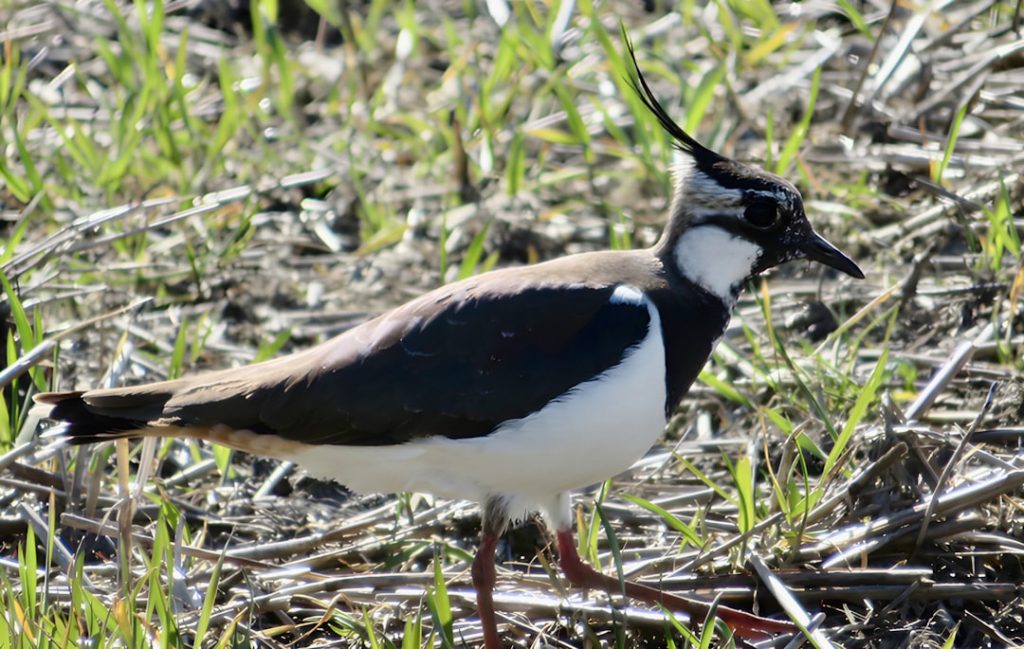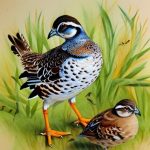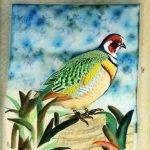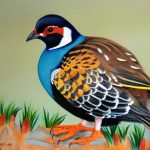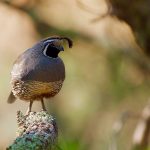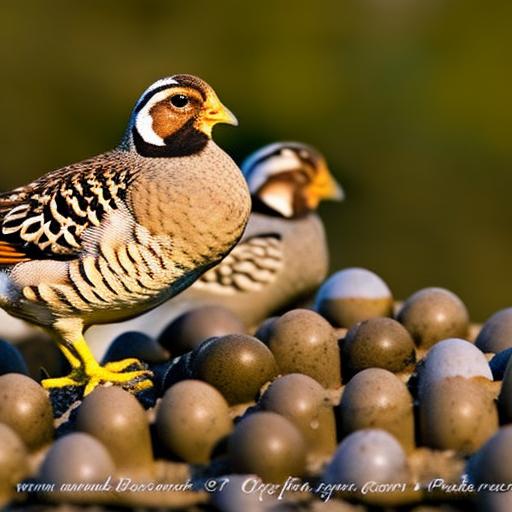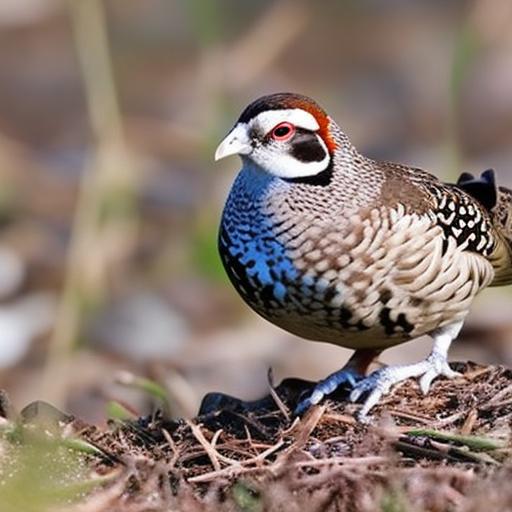Proper nutrition is crucial for breeding quail as it directly impacts their reproductive success and overall health. Breeding quail require a well-balanced diet to ensure optimal egg production, fertility, and hatchability. Inadequate nutrition can lead to poor egg quality, low hatch rates, and increased susceptibility to diseases. Additionally, proper nutrition plays a vital role in the growth and development of the chicks, ensuring they have the best start in life. By providing breeding quail with the right nutrients, breeders can help them reach their full reproductive potential and produce healthy offspring.
Furthermore, proper nutrition is essential for maintaining the overall health and well-being of breeding quail. A well-balanced diet supports their immune system, helps them cope with the stress of breeding, and promotes overall vitality. Breeding quail that are well-nourished are more likely to exhibit strong mating behaviors, have higher fertility rates, and successfully rear their young. Therefore, it is imperative for breeders to understand the specific nutritional requirements of breeding quail and provide them with a diet that meets their needs throughout the breeding season.
Table of Contents
- 1 Protein Requirements for Breeding Quail
- 2 Essential Vitamins and Minerals for Breeding Quail
- 3 High-Quality Feed Options for Breeding Quail
- 4 Supplementing Breeding Quail’s Diet with Greens and Insects
- 5 Feeding Schedule for Breeding Quail
- 6 Tips for Monitoring Breeding Quail’s Health and Adjusting their Diet
- 7 FAQs
- 7.1 What should I feed breeding quail?
- 7.2 What should be included in a commercial quail feed for breeding quail?
- 7.3 What fresh fruits and vegetables are suitable for breeding quail?
- 7.4 Are there any foods that should be avoided when feeding breeding quail?
- 7.5 How often should breeding quail be fed?
- 7.6 Should breeding quail have access to grit or calcium supplements?
Key Takeaways
- Proper nutrition is crucial for breeding quail to ensure reproductive success and healthy offspring.
- Breeding quail require a high-protein diet, with at least 24-28% protein content in their feed.
- Essential vitamins and minerals such as calcium, phosphorus, and vitamin D3 are important for breeding quail to maintain strong bones and eggshell quality.
- High-quality feed options for breeding quail include commercial game bird feeds and starter feeds with the right balance of nutrients.
- Supplementing breeding quail’s diet with greens and insects can provide additional nutrients and enrichment.
- A feeding schedule for breeding quail should include regular access to feed and clean water, with adjustments made during breeding and molting seasons.
- Monitoring breeding quail’s health and adjusting their diet based on egg production, weight, and overall condition is important for their well-being and reproductive success.
Protein Requirements for Breeding Quail
Protein is a critical component of a breeding quail’s diet as it is essential for egg production, fertility, and chick development. During the breeding season, female quail require a higher level of protein to support the development of eggs and ensure successful reproduction. Adequate protein intake is also crucial for male quail as it directly impacts their fertility and mating behaviors. A diet deficient in protein can lead to decreased egg production, poor hatchability, and reduced chick survival rates. Therefore, it is important for breeders to provide breeding quail with a high-quality feed that contains the appropriate level of protein to meet their specific needs.
In addition to the quantity of protein, the quality of the protein source is also important for breeding quail. Animal-based proteins such as mealworms, earthworms, and insects are highly digestible and provide essential amino acids that are vital for reproductive success. Plant-based proteins such as soybean meal and alfalfa meal can also be included in the diet to supplement the protein content. By ensuring that breeding quail have access to a feed that meets their protein requirements, breeders can support optimal reproductive performance and the health of the offspring.
Essential Vitamins and Minerals for Breeding Quail
In addition to protein, breeding quail require a range of essential vitamins and minerals to support their reproductive health and overall well-being. Vitamin A is crucial for maintaining healthy vision, promoting proper growth, and supporting the development of the embryo. Vitamin D is essential for calcium absorption, which is important for eggshell formation and skeletal development in the chicks. Vitamin E acts as an antioxidant, protecting the reproductive cells from oxidative damage and supporting fertility. B vitamins are also important for energy metabolism, nervous system function, and overall vitality.
Minerals such as calcium, phosphorus, and magnesium are essential for eggshell formation, skeletal development, and muscle function in breeding quail. Calcium is particularly important during the breeding season as female quail require a sufficient amount to produce strong and healthy eggshells. Inadequate calcium intake can lead to thin-shelled eggs, egg binding, and skeletal disorders in the chicks. Therefore, it is crucial for breeders to provide breeding quail with a well-balanced feed that contains the necessary vitamins and minerals to support their reproductive needs.
High-Quality Feed Options for Breeding Quail
When it comes to feeding breeding quail, it is important to provide them with a high-quality feed that meets their specific nutritional requirements. Commercially available game bird feeds are formulated to provide breeding quail with the essential nutrients they need for optimal reproductive performance. These feeds typically contain a balanced blend of protein, vitamins, minerals, and amino acids to support egg production, fertility, and chick development. Game bird feeds are available in various formulations to meet the specific needs of breeding quail at different stages of the breeding season.
In addition to commercial game bird feeds, breeders can also supplement breeding quail’s diet with other high-quality feed options such as turkey starter or game bird starter feeds. These feeds are designed to provide young quail with the nutrients they need for healthy growth and development. Additionally, breeders can offer breeding quail treats such as mealworms, earthworms, and greens to provide variety in their diet and ensure they receive a wide range of nutrients. By providing breeding quail with a high-quality feed that meets their nutritional needs, breeders can support their reproductive success and overall health.
Supplementing Breeding Quail’s Diet with Greens and Insects
In addition to providing breeding quail with a high-quality feed, it is beneficial to supplement their diet with fresh greens and insects. Greens such as spinach, kale, dandelion greens, and clover are rich in vitamins, minerals, and antioxidants that can support the overall health of breeding quail. These greens also provide fiber, which is important for digestive health and can help prevent issues such as impacted crops. Offering a variety of greens can also stimulate natural foraging behaviors in breeding quail and provide mental stimulation.
Insects such as mealworms, earthworms, crickets, and black soldier fly larvae are excellent sources of animal-based protein and essential amino acids for breeding quail. Insects are highly palatable to quail and can be used as a treat or supplement to their regular diet. They provide a natural source of nutrition that can support reproductive performance, chick development, and overall vitality. By supplementing breeding quail’s diet with greens and insects, breeders can ensure they receive a diverse range of nutrients that support their reproductive success and overall well-being.
Feeding Schedule for Breeding Quail
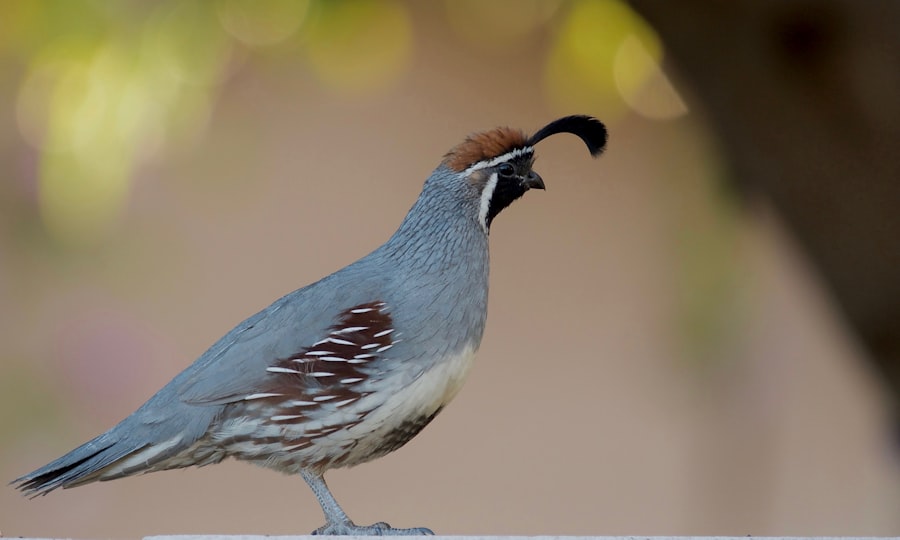
Establishing a feeding schedule is important for ensuring breeding quail receive consistent access to the nutrients they need throughout the breeding season. Breeding quail should have access to a high-quality feed at all times to support their reproductive needs. This continuous access to feed ensures that female quail have the necessary nutrients to produce eggs and that male quail have the energy they need for mating behaviors. Additionally, providing breeding quail with access to fresh water at all times is essential for maintaining their overall health and supporting egg production.
In addition to their regular feed, breeders can offer breeding quail treats such as greens and insects on a daily or weekly basis. These treats can be provided in small quantities to supplement their diet and provide variety. It is important to monitor the intake of treats to ensure they do not make up more than 10% of the quail’s total diet. By establishing a feeding schedule that provides breeding quail with consistent access to a high-quality feed and supplemental treats, breeders can support their reproductive success and overall health throughout the breeding season.
Tips for Monitoring Breeding Quail’s Health and Adjusting their Diet
Monitoring the health of breeding quail is essential for identifying any nutritional deficiencies or health issues that may arise during the breeding season. Breeders should regularly observe their quail for signs of poor appetite, weight loss, decreased activity, abnormal droppings, or changes in behavior. These may indicate that the quail are not receiving adequate nutrition or may be experiencing health issues that require attention. Additionally, regularly checking the condition of eggs for abnormalities such as thin shells or rough textures can provide insight into the nutritional status of the quail.
If any signs of poor health or nutritional deficiencies are observed, breeders should consider adjusting the diet of their breeding quail accordingly. This may involve increasing the protein content of their feed, providing additional sources of vitamins and minerals, or offering supplemental treats such as greens and insects. It is important to make gradual changes to the diet to avoid causing stress or digestive upset in the quail. Consulting with a veterinarian or avian nutritionist can also provide valuable guidance on adjusting the diet to meet the specific needs of breeding quail. By monitoring the health of breeding quail and making necessary adjustments to their diet, breeders can ensure they receive the nutrition they need for optimal reproductive success and overall well-being.
If any signs of poor health or nutritional deficiencies are observed, breeders should consider adjusting the diet of their breeding quail accordingly. This may involve increasing the protein content of their feed, providing additional sources of vitamins and minerals, or offering supplemental treats such as greens and insects. It is important to make gradual changes to the diet to avoid causing stress or digestive upset in the quail. Consulting with a veterinarian or avian nutritionist can also provide valuable guidance on adjusting the diet to meet the specific needs of breeding quail. By monitoring the health of breeding quail and making necessary adjustments to their diet, breeders can ensure they receive the nutrition they need for optimal reproductive success and overall well-being. Regular monitoring and adjustments to the diet can help prevent health issues and ensure that breeding quail are in prime condition for successful reproduction.
When it comes to breeding quail, it’s essential to provide them with a balanced diet to ensure their health and productivity. In a recent article on PoultryWizard, the importance of proper nutrition for poultry is highlighted, offering valuable insights into the specific dietary needs of quail during the breeding process. The article discusses the significance of incorporating high-protein feeds, such as game bird starter or turkey starter, to support the quail’s reproductive health and egg production. For more in-depth information on poultry nutrition and care, check out the article “Chicken Coop Trampoline” on PoultryWizard’s website.
FAQs
What should I feed breeding quail?
Breeding quail should be fed a balanced diet that includes a high-quality commercial quail feed, as well as fresh fruits and vegetables.
What should be included in a commercial quail feed for breeding quail?
A commercial quail feed for breeding quail should contain a balanced mix of protein, vitamins, and minerals. Look for a feed that is specifically formulated for breeding quail.
What fresh fruits and vegetables are suitable for breeding quail?
Breeding quail can be fed a variety of fresh fruits and vegetables, including leafy greens, carrots, cucumbers, and berries. It’s important to provide a diverse range of fruits and vegetables to ensure that the quail receive a wide range of nutrients.
Are there any foods that should be avoided when feeding breeding quail?
Foods that are high in fat, salt, or sugar should be avoided when feeding breeding quail. Additionally, toxic plants and foods that are harmful to birds, such as avocado, should never be fed to quail.
How often should breeding quail be fed?
Breeding quail should have access to food at all times. It’s important to provide a constant supply of fresh commercial quail feed, as well as regular offerings of fresh fruits and vegetables.
Should breeding quail have access to grit or calcium supplements?
Yes, breeding quail should have access to grit and calcium supplements. Grit helps the quail to grind their food in their gizzards, while calcium is essential for eggshell formation in breeding females.
Meet Walter, the feathered-friend fanatic of Florida! Nestled in the sunshine state, Walter struts through life with his feathered companions, clucking his way to happiness. With a coop that’s fancier than a five-star hotel, he’s the Don Juan of the chicken world. When he’s not teaching his hens to do the cha-cha, you’ll find him in a heated debate with his prized rooster, Sir Clucks-a-Lot. Walter’s poultry passion is no yolk; he’s the sunny-side-up guy you never knew you needed in your flock of friends!

